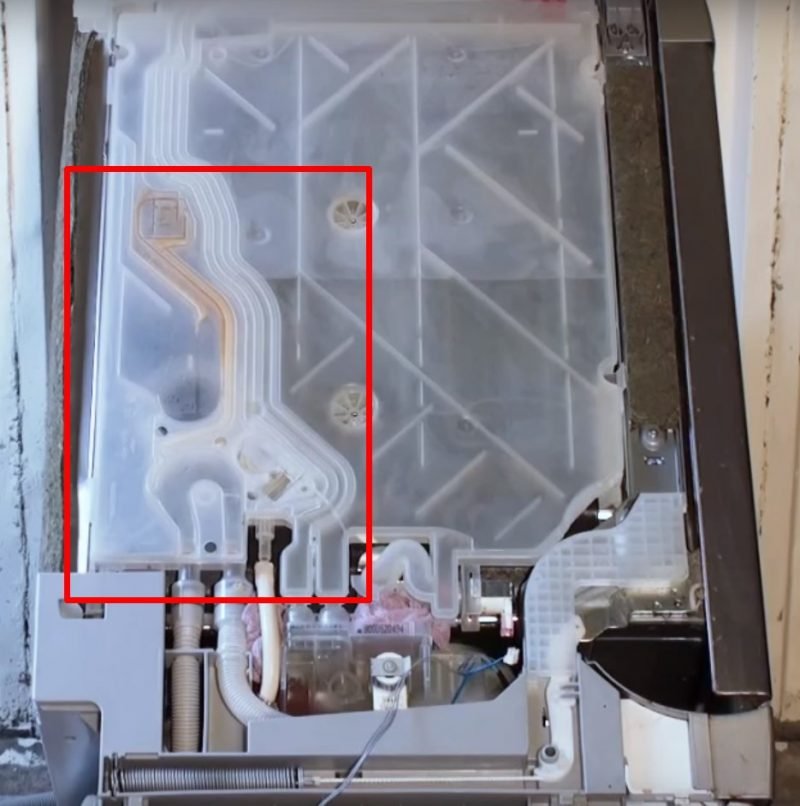
Here’s the deal: error codes are like your dishwasher’s way of raising a red flag. The “OE” code, in particular, indicates that there’s an issue with the appliance’s drainage system. Simply put, your dishwasher is struggling to drain water properly. Ignoring it might be tempting, especially if your dishwasher seems to still work. But is it wise? Much like a warning light on your car’s dashboard, ignoring it can lead to more significant problems down the road. Let’s dive into the nitty-gritty of this error, what causes it, and why you shouldn’t just sweep it under the rug.
Understanding the Bosch Dishwasher Error Code OE
When your Bosch dishwasher throws an “OE” error code, it’s essentially a cry for help regarding its drainage capabilities. Think about it like this: imagine trying to drink water from a clogged straw. Frustrating, right? That’s what your dishwasher is dealing with. The “OE” error is specifically indicating a drainage problem, meaning the water used during the cycle isn’t being expelled as it should be.
This error can stem from several common issues. First off, it might be because of a blocked or kinked drainage hose. Imagine a garden hose that’s twisted or clogged; water won’t pass through easily. Similarly, if the drainage hose of your dishwasher is obstructed, the water can’t exit. Another possibility is a malfunctioning drain pump. This pump is supposed to push the water out, but if it’s acting up, the water isn’t going anywhere fast. Lastly, there might be a blockage in the drain hose or the garbage disposal unit your dishwasher is connected to. So, while the machine is trying its best to do its job, these blockages prevent it from succeeding.
Ignoring the issue isn’t advisable. When the water doesn’t drain correctly, it might lead to standing water in your dishwasher. This standing water isn’t just inconvenient; it can lead to unpleasant odors and mold growth. Over time, this can make your dishwasher less effective or even damage it permanently.
Why Ignoring the OE Error Isn’t a Good Idea
You might be thinking, “But my dishwasher still runs despite the error!” While it’s true the appliance might continue working for a while, operating it with the “OE” error can lead to more extensive problems over time. Just like ignoring a small leak in your roof can lead to significant water damage, ignoring this error can cause severe damage to your dishwasher’s components.
Continued use without addressing the drainage issue can strain the pump. Think of it like running a marathon with a heavy backpack—it’s doable for a bit, but eventually, it becomes unsustainable and risky. The pump is forced to work harder, which can lead to overheating or complete failure. Additionally, stagnant water left in the machine might damage the dishwasher’s internal parts or lead to leaks that could damage your kitchen flooring.
Furthermore, standing water is a breeding ground for bacteria and mold, which isn’t just harmful to your appliance but can also pose health risks. Do you want your freshly washed dishes sitting in a germ-riddled environment? Probably not. Therefore, it’s essential to address the issue promptly. Cleaning the drainage system and ensuring everything is in working order can save you a lot of hassle and money in the long run.
Steps to Address the OE Error Code
Now that you understand the importance of not ignoring the “OE” error, let’s go over how you can tackle it. Don’t worry; you don’t need to be a professional repair person. With a bit of patience and some basic troubleshooting, you can often resolve this on your own.
First, start by checking the drainage hose. Make sure it’s not kinked or clogged. You’ll find this hose connected to the back of your dishwasher. Carefully detach it and see if there’s any debris blocking it. Remember, it’s like untwisting that garden hose so the water can flow freely again. If the hose is clear, the next step is to examine the drain pump. You’ll need to access the bottom part of your dishwasher, which might require a bit of unscrewing. Once you’re there, check for obstructions.
If these solutions don’t seem to work, consider looking at the garbage disposal. Often, new installations can leave the knockout plug in place which then blocks the flow. Removing this can solve the issue immediately. If you’ve checked all these and the “OE” error persists, it might be time to call in a professional. Sometimes, what seems like a straightforward issue might be more complex than it appears.
Preventative Measures to Avoid Future Errors
Prevention is always better than cure. Taking a few simple steps can help you avoid the hassle of dealing with the “OE” error in the future. Regular maintenance is key. Consider scheduling a monthly check to ensure the drainage system is clear. Just like you’d periodically check the oil in your car, a little bit of upkeep goes a long way in preventing big issues.
Cleaning the filters and keeping the interior of the dishwasher free of food particles can also drastically reduce the likelihood of a drainage issue. Regularly run hot water through the drainage system to help dissolve any grease or soap scum that could lead to blockages. Finally, be mindful of what you’re putting in your dishwasher. Avoid large food particles that could clog the system.
By keeping these tips in mind, you can prolong the life of your dishwasher and maintain its efficiency. Addressing the “OE” error promptly and taking preventative measures will ensure you continue enjoying the convenience of your Bosch dishwasher without unnecessary interruptions.